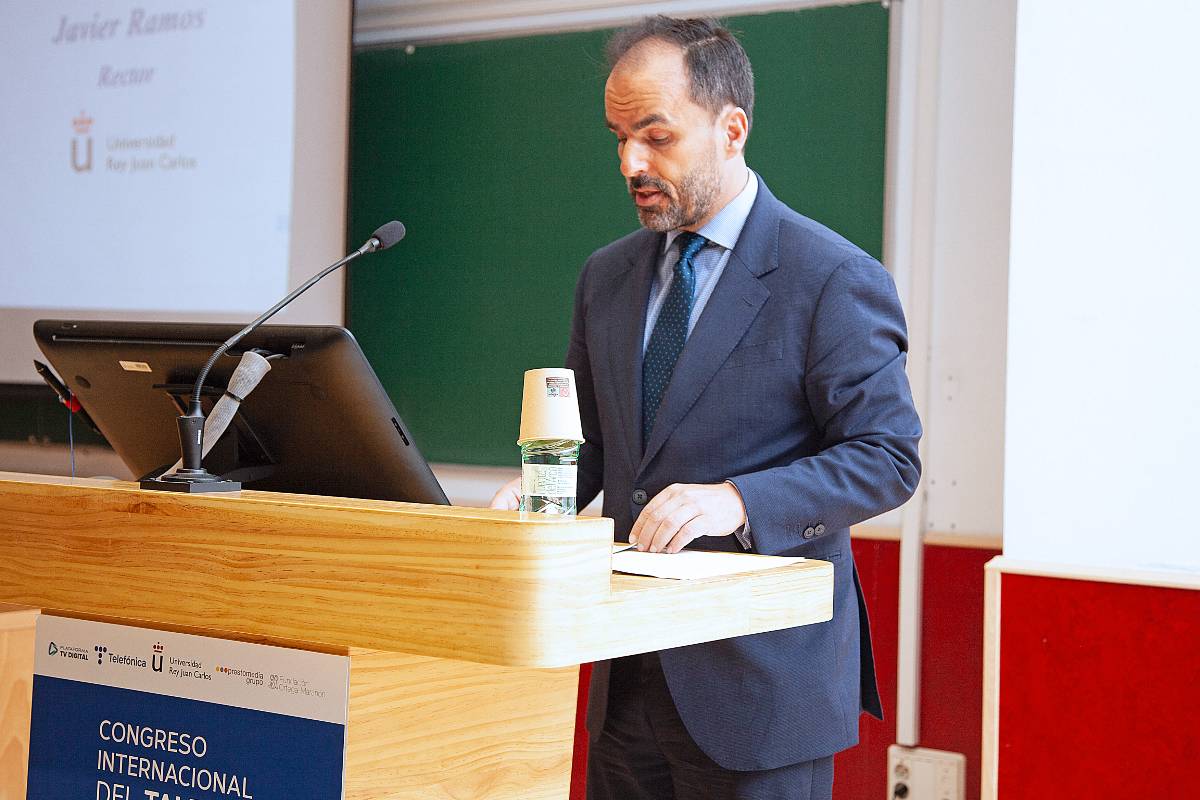Raul Garcia Hemonnet
For two days, (October 26 and 27), the Móstoles campus hosts a meeting in which different issues related to the training, management and visibility of talent in the XNUMXst century will be addressed.
The rector, Javier Ramos, opened the event and stated that “the University must play a fundamental role in equipping European citizens with the skills necessary to prosper in a constantly changing world. For this, micro-credentials will be a fundamental tool. A flexible, short-term format that allows personalized training and updating in specific skills.”

Lifelong training
Precisely micro-credentials (short-term and highly flexible degrees that can be taken throughout life) are the subject of one of the round tables that took place on Thursday. Various experts from the URJC have participated, such as the vice-rector for Continuing Training, Lourdes Meléndez and the deputy director of Postgraduate Studies at the ETSII, Daniel Palacios. Both have highlighted the offer of micro-credentials that the Rey Juan Carlos University is designing and that will be available starting in January. And they have recalled the very important commitment to the future that the university makes for this new format.
Also, in this forum, Agnieszka Jelnicka, representative of the European Commission who works on the implementation of this type of qualifications, has highlighted the relevance that this type of training has in the training of citizens of the Union.
This morning's session was completed with a round table on humanism and Artificial Intelligence and, for the afternoon, there is a block dedicated to attracting and retaining talent in the digital world. It is attended by María Andrés, director of the European Parliament Office in Madrid and several students from the URJC. It is moderated by Alberto Sánchez Campos, professor of Computer Architecture and Technology.
Continue making visible
Among Friday's sessions, the one dedicated to female talent stands out, in which the need to continue making visible the work of women in STEM fields and the opportunity to promote female talent through training will be addressed. The table is moderated by the professor of Electronic Technology at ESCET, Beatriz Romero Herrero, and is attended by Mar García Mendoza, deputy director of the Spanish Institute of Foreign Trade, ICEX, and representatives of the platforms 'Talent for the future' and ' Sum Talent'.
The Congress will be closed by the Vice-Rector for International Relations, María Luisa Humanes, and the CEO of the Prestomedia Group, Yago González.



